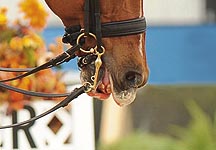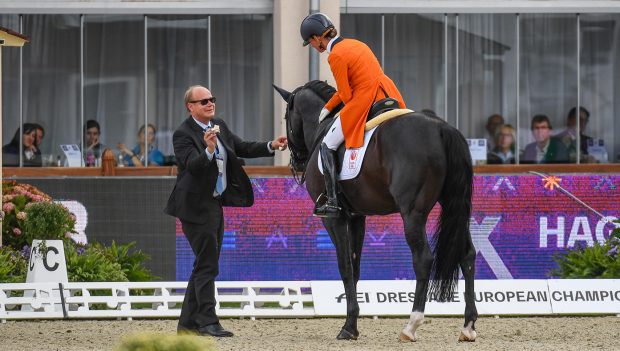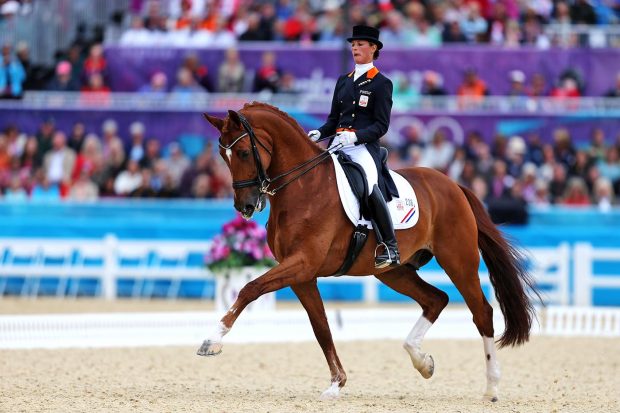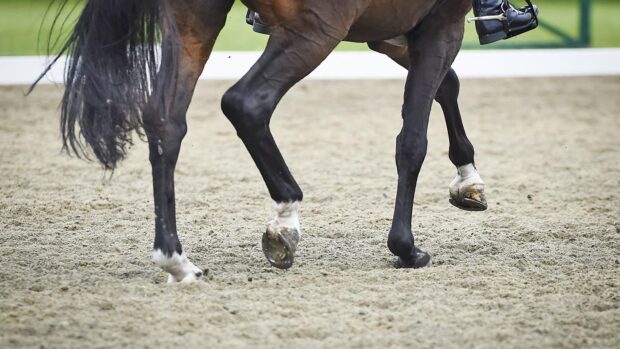Proposed new dressage rules, which may have enabled Adelinde Cornelissen to claim a medal at the World Equestrian Games (WEG) last year, have been commended by leading figures.
The rules detailing what to do if blood is seen on a horse during a dressage test at international level were decided at the FEI Dressage Committee meeting in Paris on 7-8 June.
FEI five-star international judge Andrew Gardner said the proposals are “totally positive”.
“The new guidelines would mean that the responsibility is shared between the judges and the vets,” he said.
“If a vet deems it acceptable for a horse to continue, it’s good not just for the combination but also for dressage’s public perception, as people would know the horse had the green light from the vet.”
Discrepancies on this issue between dressage and other FEI disciplines were highlighted by Horse & Hound and continental magazine Horse International earlier this year (news, 24 February).
Despite not having a rule specifically mentioning blood, dressage riders were being disqualified without investigation into the nature of the injury.
In other disciplines, officials were able to allow horses with “minor cases” to continue.
Based on this interpretation of the dressage rules, Dutch rider Adelinde Cornelissen and Jerich Parzival were immediately eliminated at WEG when blood was spotted in the horse’s mouth, scuppering her hopes of an individual medal (news, 7 October 2010).
The new rule, which will be debated at the FEI General Assembly in November, states a test should be stopped if blood appears anywhere on the horse.
But horses competing in the Olympics, World Equestrian Games and World Cup Finals would then be examined by an FEI vet and allowed to resume the test if the bleeding has stopped.
At lower level events, or where there is no FEI vet present to examine the horse, any bleeding would result in immediate elimination.
If passed at the general assembly, the new rules will be implemented on 1 January 2012.
Read this news story in full in the current issue of Horse & Hound (30 June 2011)




